By Liana Jacob
THIS BRITISH photographer with more than a HUNDRED-DEGREE curved spine is showing that she is DISABLED AND SEXY in a series of risqué photographs after she was bullied at school and called the ‘HUNCHBACK OF NOTRE DAME’.
Photographer and marketing and communications officer, Becky Dann (25) from Cambridgeshire, UK, was just four years old when her parents noticed that her spine was curving.
They took her to the hospital where they diagnosed her with kyphoscoliosis, a deformity of the spine characterised by an unusual curvature of the vertebral column in two planes.
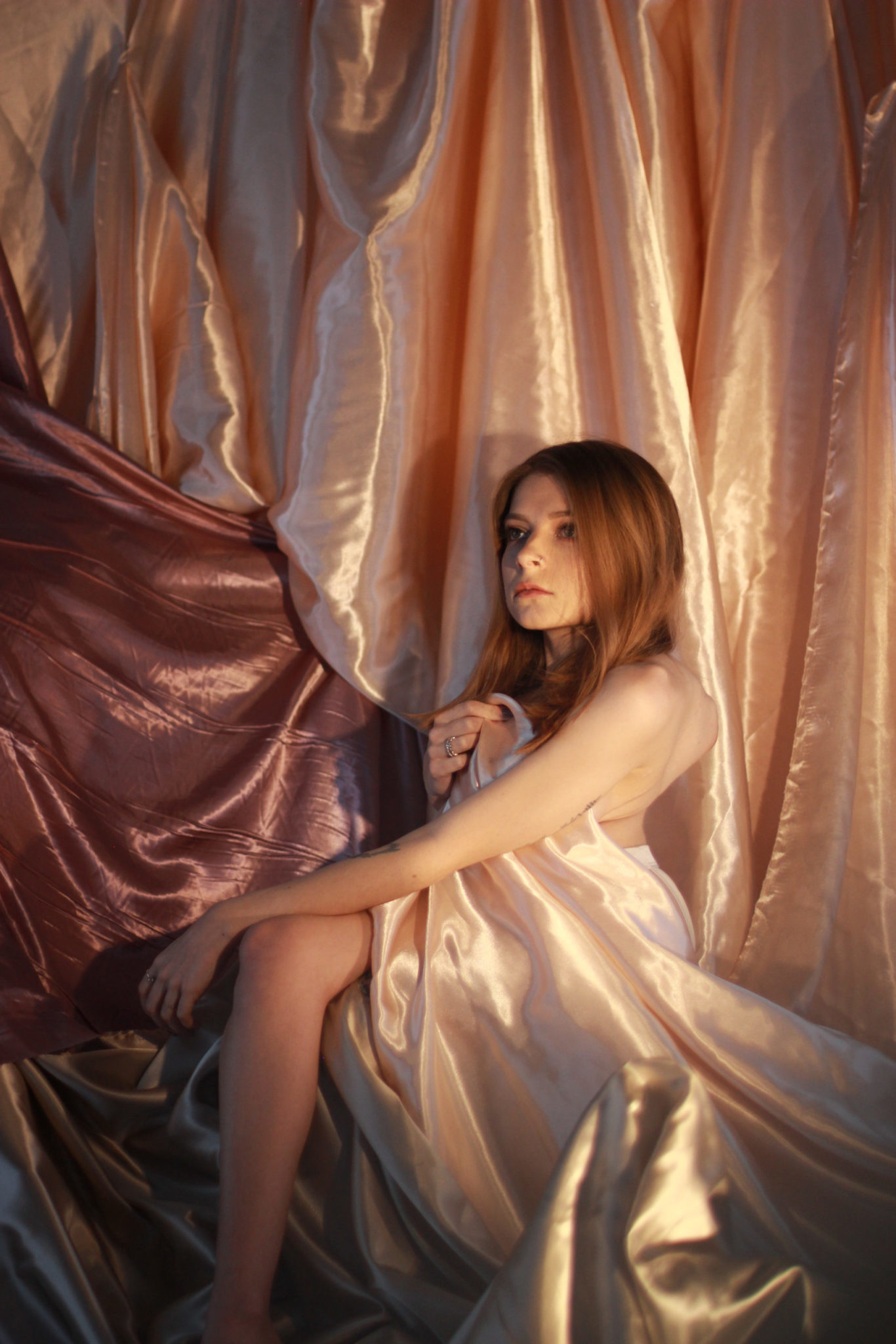
She was taken in for x-rays and as she got older, Becky had numerous operations to figure out what was happening and how it could be cured. For most of her childhood, she had to wear a body cast to keep her spine upright.
Growing up with this condition which doctors could not rectify as it would have been dangerous, meant that Becky was subjected to being bullied by her high school peers who would call her ‘Hunchback of Notre Dame’ and when she was left in a wheelchair, she would be accused of ‘faking’ her condition. In 2002 her curve was at a 118-degree angle and has been curving ever since.
After years of dating, she discovered that many people assumed that since she was disabled, she could not or did not have sex, which motivated her to write a blog about sex and disability to educate people about her condition.
In December 2018, she decided to take a series of risqué photographs of her in lingerie to show people that it is possible to be sexy and disabled after the realisation that there were no models with disabilities shown in lingerie.
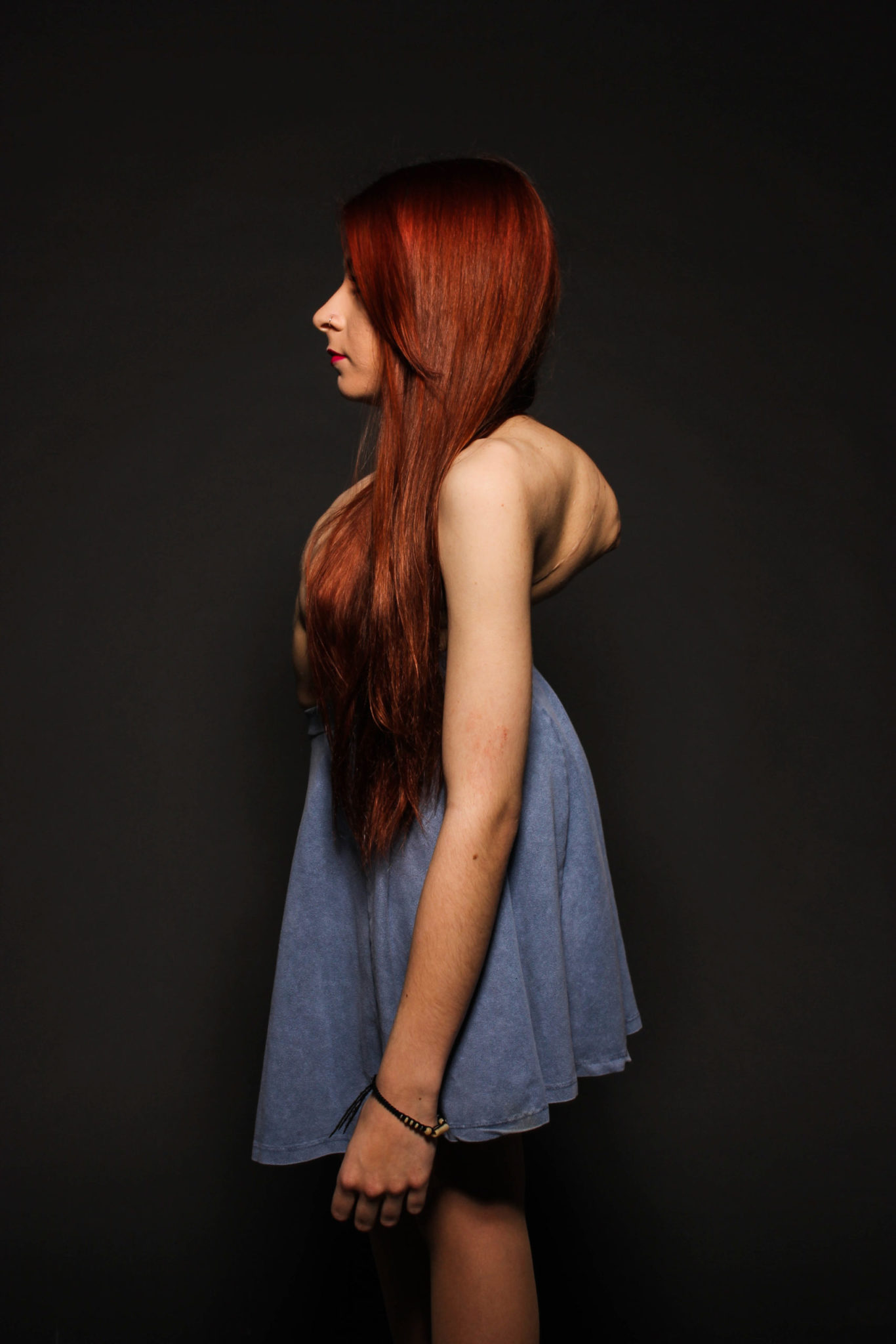
Her project has garnered positive attention and open discussions around the topic and despite initially feeling nervous about putting her work out there, the reaction she has received has inspired her to continue her mission.
“Growing up with scoliosis was sometimes difficult, I never really thought of myself as different, it was other children that made me feel that way,” Becky said.
“I believe I was diagnosed at the age of four; my parents noticed my spine was curving, so they took me to the doctors where I was diagnosed.
“I was taken in for x-rays and as I got older I had more and more operations to try and see what could be done.
“I had to wear a body cast for most of my childhood which acted like scaffolding to my spine, keeping it upright.
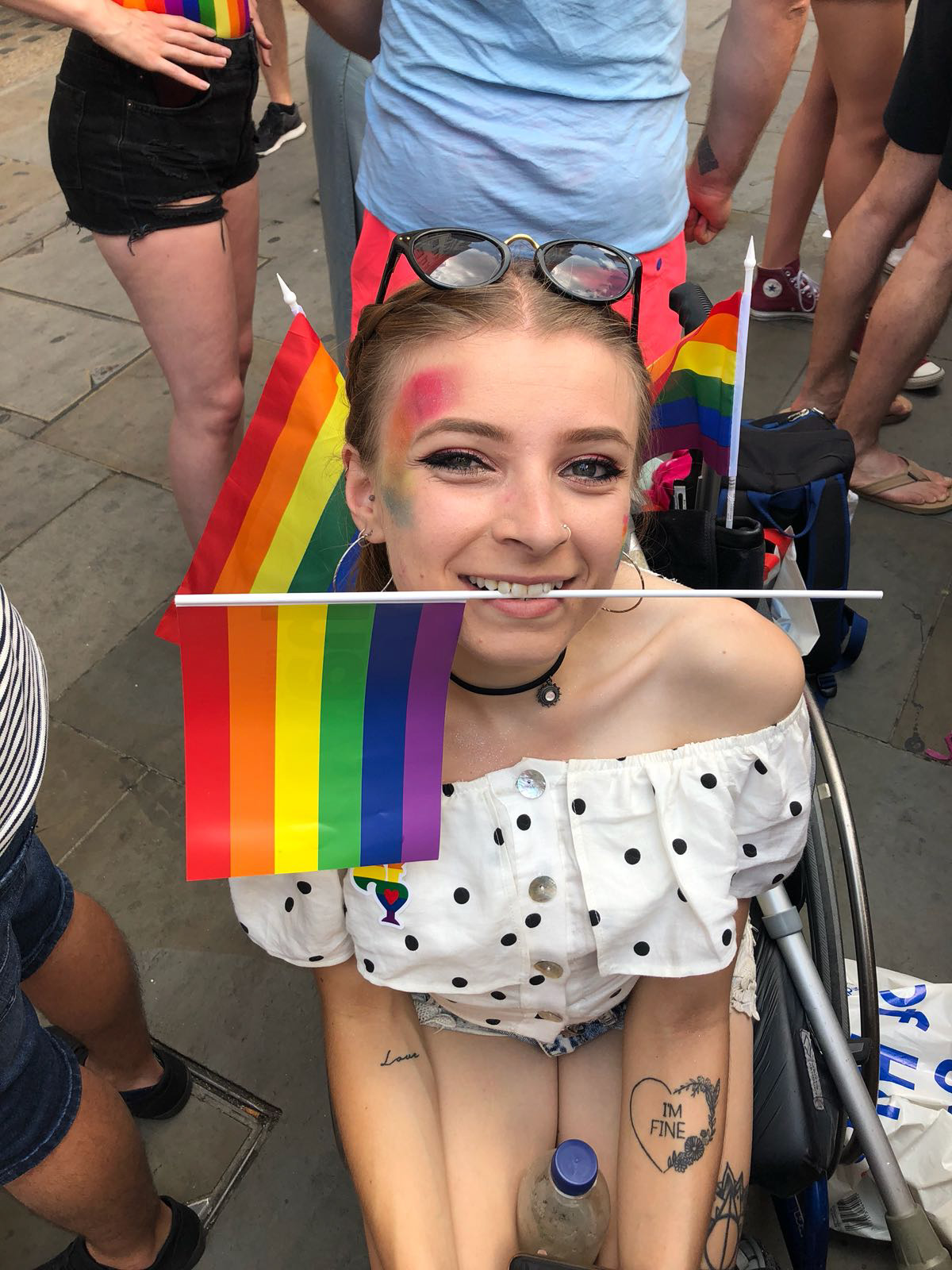
“I’ve been seeing doctors for many years. I no longer have surgery though as there’s nothing more that can be done.
“Most of my surgeries were spinal, I have had a rib removed from my ribcage and grafted onto my spine, but other than that, the surgery has just been to look and see what could be done.
“I got called Hunchback of Notre Dame a lot as a child, but I never really let it affect me, I still had a fun childhood and my friends were always great.
“It wasn’t really until I was in secondary school that things got harder, I was heading into teenage years which is a confusing time for us all and people weren’t very nice about how I looked.
“My condition also deteriorated massively towards the end of year seven and I needed a wheelchair, it confused a lot of kids at school and I was bullied for ‘faking it’ which was incredibly hard.
“I was lucky to have such supportive friends around me but spending secondary school in a wheelchair was tough and I didn’t really speak to anyone outside of my friendship group. I couldn’t wait to leave.
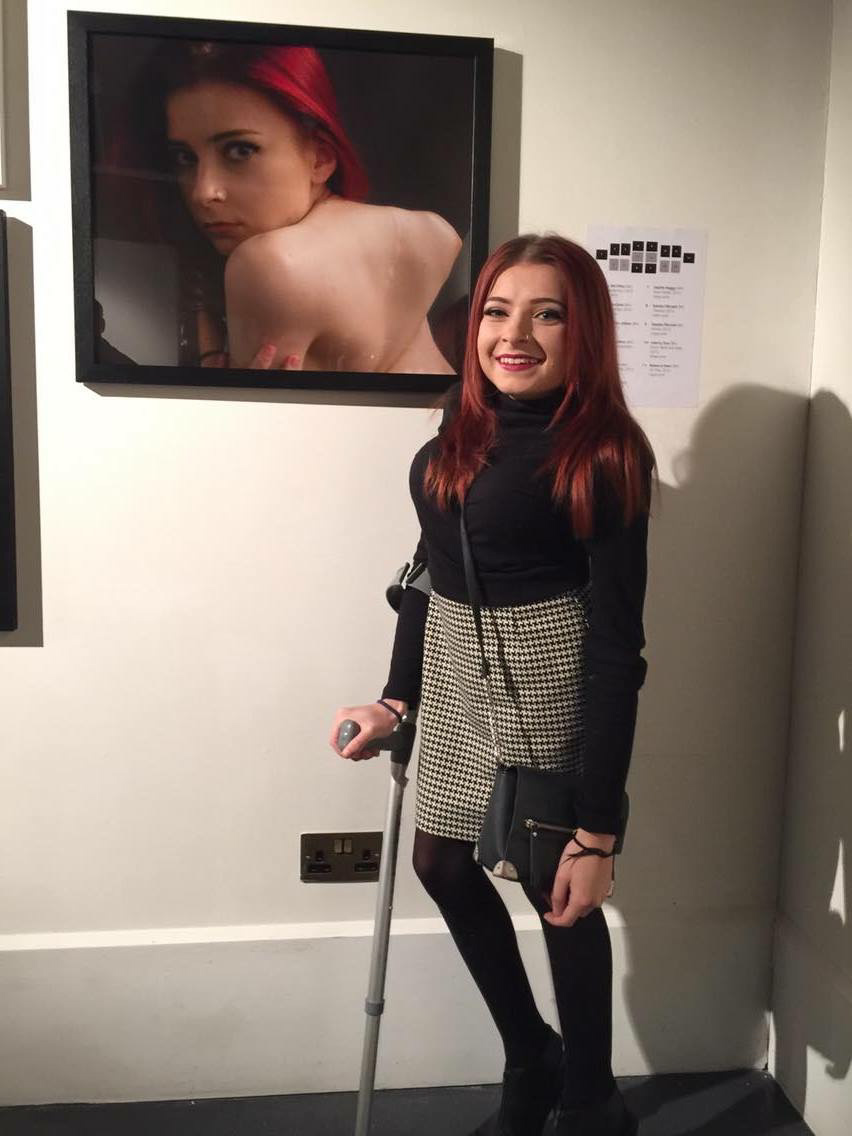
“I wrote a blog on my website about Sex and Disability because as someone who dates a lot, I find that more and more people on dating apps just don’t seem to be educated and understand that being disabled doesn’t mean you can’t have sex.
“I opened up my Instagram questions and asked for people to ask me things around the subject. I knew it would be personal, but I wanted to just be open and hopefully educate people.
“I was then contacted by Mia Maxwell, founder of Femzine, they wanted to share the piece in their magazine and wondered if I would be interested in having some accompanying images with it.
“I hadn’t really done a photography project for myself since university and thought it could be such a good opportunity.”
Becky’s photo series explores the risqué element that educates people that those with disabilities can feel confidence and sexual power.
“I have done portraits of myself before and I think I just really wanted to do this project because I wanted to show that you can be disabled and sexy,” she said.
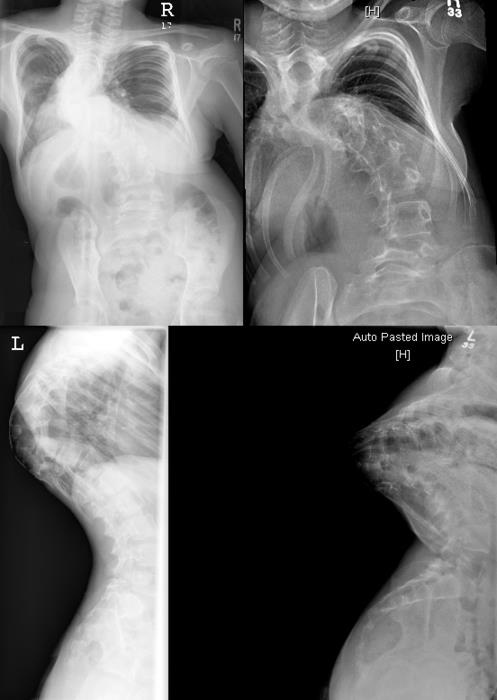
“There isn’t really any ‘risqué’ imagery of disabled people, we don’t see them in lingerie shops/catalogues, we’re not on posters or adverts. So, I took it on myself.
“I see strength. For me anyway, it is a huge thing for me to be so confident in myself, my body and sexuality. I see a woman representing disability in a different way.
“In every photoshoot you have a team, so for this to work we had an art director and stylist who both helped me get the images.
“I love how liberating and freeing it felt. The more I do self-portraiture the more confident I feel. It’s extremely therapeutic.
“The reaction I got was amazing; when I first put the images out, I was scared because I made myself quite vulnerable.
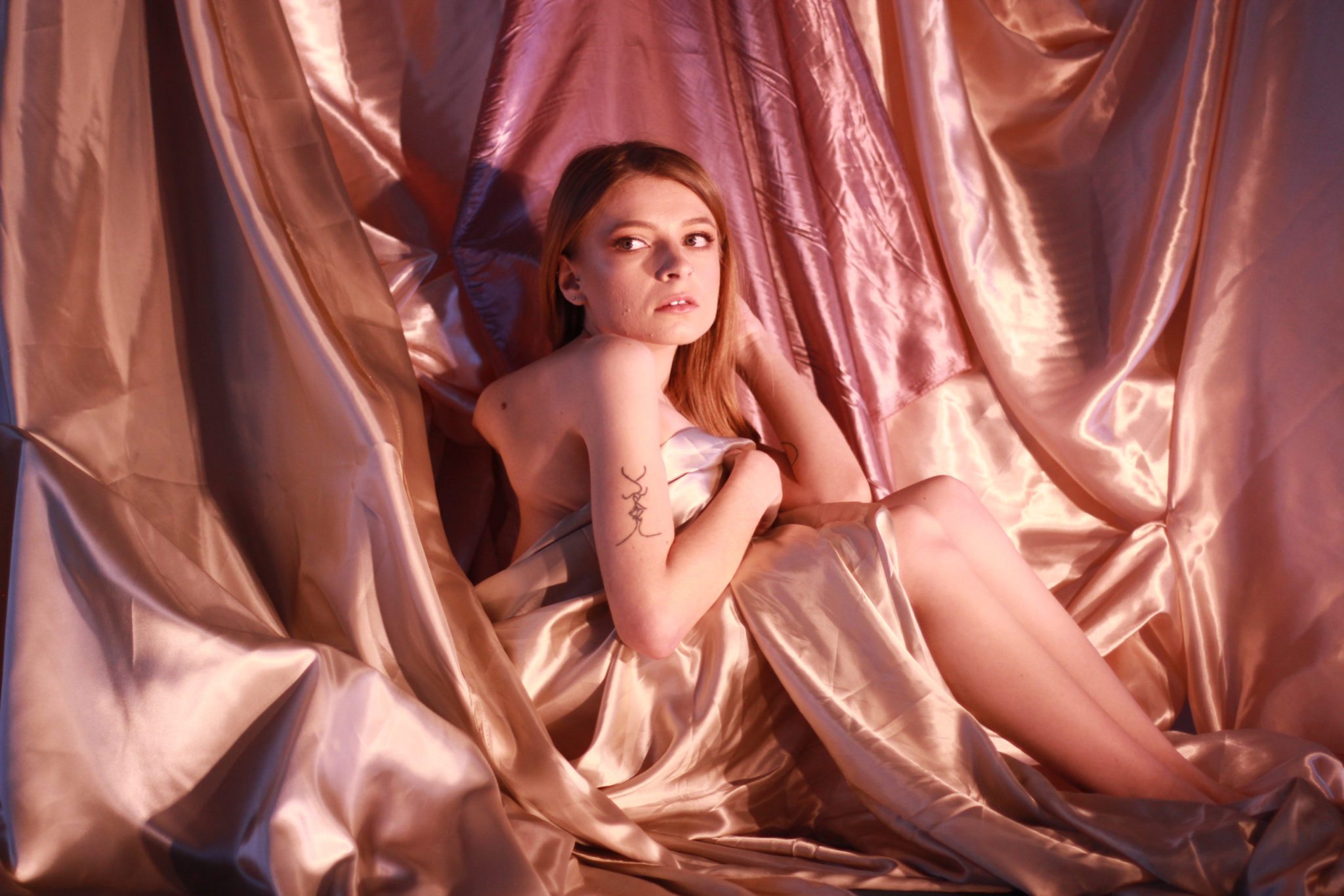
“I was also worried that as soon as I made my imagery seem ‘sexual’ that people would react badly because the Brits can be so awkward talking about sex, as well as being awkward talking about disability, so when you talk about both subjects in one, people can get weird.
“But so far, they haven’t, a lot of people actually contacted me admitting they felt naive and embarrassed that they also had assumed disabled people couldn’t/didn’t have sex and although it was a small pool of people, I was pleased I had educated others.
“I’m not currently in a relationship, I was recently but it ended. I am personally finally happy being single; I think for a long time I felt like all I needed for my life to be ‘complete’ was a relationship, but I’ve come to realise my life is great without one.
“I love the feeling of freedom and I see too many people who are more unhappy since being in their relationship than when they were single and I just don’t want that for myself.”






